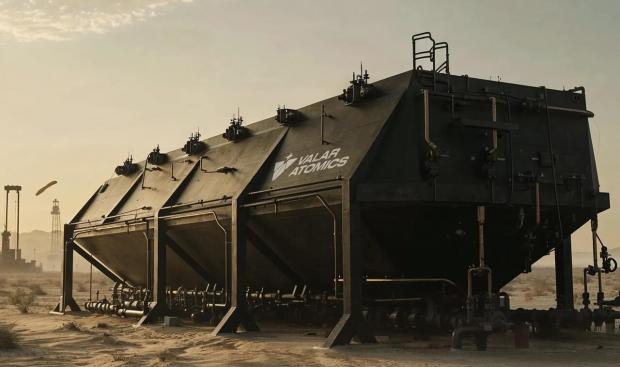
Breaking News
 Microsoft Hands Over Encryption Keys #fyp #technews #microsoft #computer #secure
Microsoft Hands Over Encryption Keys #fyp #technews #microsoft #computer #secure
 Windows Now Requires Age Verification? #fyp #technews #windows #microsoft #privacy
Windows Now Requires Age Verification? #fyp #technews #windows #microsoft #privacy
 Iran's new supreme leader is named as Ali Khamenei's son Mojtaba - Iranian TV network report
Iran's new supreme leader is named as Ali Khamenei's son Mojtaba - Iranian TV network report
 Bill Pervs Out Over Epstein Memories, Hillary Goes Berserk, And They Both Lied: Top Viral Moments...
Bill Pervs Out Over Epstein Memories, Hillary Goes Berserk, And They Both Lied: Top Viral Moments...
Top Tech News
 US particle accelerators turn nuclear waste into electricity, cut radioactive life by 99.7%
US particle accelerators turn nuclear waste into electricity, cut radioactive life by 99.7%
 Blast Them: A Rutgers Scientist Uses Lasers to Kill Weeds
Blast Them: A Rutgers Scientist Uses Lasers to Kill Weeds
 H100 GPUs that cost $40,000 new are now selling for around $6,000 on eBay, an 85% drop.
H100 GPUs that cost $40,000 new are now selling for around $6,000 on eBay, an 85% drop.
 We finally know exactly why spider silk is stronger than steel.
We finally know exactly why spider silk is stronger than steel.
 She ran out of options at 12. Then her own cells came back to save her.
She ran out of options at 12. Then her own cells came back to save her.
 A cardiovascular revolution is silently unfolding in cardiac intervention labs.
A cardiovascular revolution is silently unfolding in cardiac intervention labs.
 DARPA chooses two to develop insect-size robots for complex jobs like disaster relief...
DARPA chooses two to develop insect-size robots for complex jobs like disaster relief...
 Multimaterial 3D printer builds fully functional electric motor from scratch in hours
Multimaterial 3D printer builds fully functional electric motor from scratch in hours
 WindRunner: The largest cargo aircraft ever to be built, capable of carrying six Chinooks
WindRunner: The largest cargo aircraft ever to be built, capable of carrying six Chinooks
Defending Against Strained Grids, Army To Power US Bases With Micro-Nuke Reactors

As soaring demand for electric power threatens to rapidly overtake America's supply, the US Army on Tuesday announced a plan to install nuclear microreactors at bases across the country. "What resilience means to us is that we have power, no matter what, 24-7," said principal deputy assistant secretary of the Army Jeff Waksman after the program was unveiled at the Association of the United States Army (AUSA) Annual Meeting Warriors Corner panel.
Pursuant to what has been christened the "Janus Program," the Pentagon is charged with bringing the first reactor online no later than September 30, 2028, and is currently identifying the first nine posts that will receive two reactors each. Those reactors will generate less than 20 megawatts of power, according to the Wall Street Journal. That's comparable to the demands of a single, small town. In addition to preserving the installations ability to function in the face of overwhelmed grids, the reactors will also serve as a safeguard against cyberattacks and weather catastrophes. The program is empowered by Executive Order 14299, "Deploying Advanced Nuclear Reactor Technologies for National Security," which was signed by President Trump in May.

 RNA Crop Spray: Should We Be Worried?
RNA Crop Spray: Should We Be Worried?

